日本正面临Population Time Bomb人口定时炸弹的威胁
Population Time Bomb 人口定时炸弹Japan needs immigrants, but do immigrants need Japan?
日本需要移民,但移民需要日本吗?

越南留学生阮玲
Tokyo (CNN)One of the first concepts Linh Nguyen learned while studying Japanese was "uchi-soto."
It refers to the practice of categorizingpeople into one of two groups -- insiders or outsiders. Family, friends and close acquaintances are insiders, referred to as "uchi," while "soto" is for those relegated to the periphery.
东京(CNN)阮玲在学习日语时学到的第一个概念是“内志-索托”。它指的是将人分为两类的做法——内部人士或外部人士。家庭、朋友和亲密的熟人都是局内人,被称为“uchi”,而“soto”则是指那些被边缘化的人。
词语辨析:
- periphery: /pə'rɪfəri/ n 外围,边缘
- margin: /'mɑrdʒən/ n 边缘;利润,余裕;页边的空白
- suburb:/'sʌbɝb/ n 郊区,边缘
For this Japan-obsessed student in Vietnam, it felt like a warning: she could be about to enter a deeply closed society that would always consider her an outsider.
对于这位痴迷于日本的越南学生来说,这就像是一个警告:她可能即将进入一个高度封闭的社会,这个社会将永远把她视为局外人。
词语辨析:
- obsessed: /əb'sest/ adj. 着迷的;无法摆脱的
- face obsessed 颜控
- absorbed: /əbˈsɔbd/ adj.全神贯注的
- Enthralling: /in'θrɔ:liŋ/ adj.迷人的
- Addictive:/ə'dɪktɪv/ adj.沉迷的
- Stimulating:/'stɪmjuletɪŋ/ adj.刺激的
Ultimately, though, that was not Nguyen's experience. The 25-year-old discovered that Japan was slowly changing.
但最终,这并不是阮的经历。这位25岁的年轻人发现,日本正在慢慢发生变化。
词语辨析:
- Ultimately:/'ʌltəmɪtlɪ/ adv.最后;根本;基本上
- eventually:/ɪ'vɛntʃuəli/ adv.最后,终于
- finally:adv. 最后;终于
- basically:adv. 主要地,基本上
- lastly:顺序上的最后
As Japan's population gets older and smaller, the government is struggling to balance its own deeply conservative views on immigration with the need for new and younger workers. Public opinion is on the side of change. Despite perceptions of xenophobia, a 2018 Pew survey revealed that 59% of Japanese believed immigrants would actually make the country stronger.
随着日本人口老龄化和人口减少,政府在移民问题上的保守观点与对新员工和年轻员工的需求之间难以取得平衡。公众舆论倾向于变革。尽管存在仇外心理,但皮尤研究中心2018年的一项调查显示,59%的日本人认为移民实际上会让国家变得更强大。
重点词汇:
- conservative views 保守的观点
- old guard:保守派
- pontificator:/pɔn'tifikeitə/ n. 保守派;教皇
- standpat:/'stænd,pæt/adj. 保守的;固执己见的
- backward-lookingadj :adj.保守的;退缩的;回顾过去的
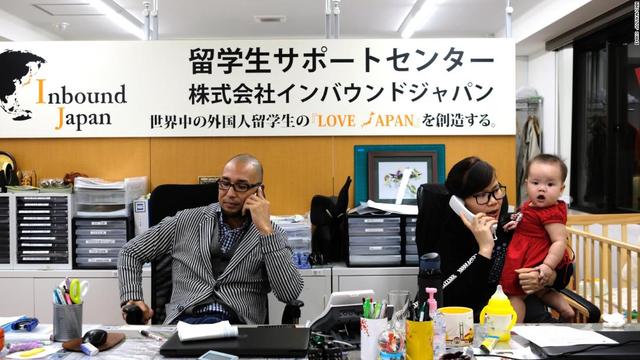
On Friday, Japanese Prime Minister Shinzo Abe is expected to ask lawmakers to vote on an unprecedented policy changeto welcome more foreign workers. If approved, the landmark ruling could see an undefined number of high-skilled workers, and up to half a million low-wage workers move to Japan over the next five years.But many argue the lack of details surrounding the policy, undermines it.
周五,日本首相安倍晋三(Shinzo Abe)预计将要求国会议员就一项前所未有的政策改革进行投票,以欢迎更多外国工人。如果获得批准,这一具有里程碑意义的裁决可能会导致高技能工人数量不明,未来五年将有多达50万低工资工人迁往日本。但许多人认为,这项政策缺乏细节,会削弱它的效果。
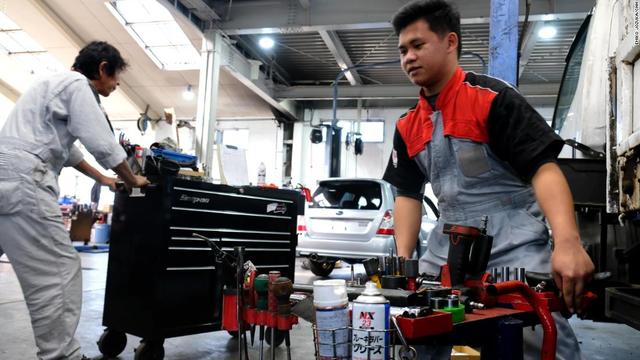
Shrinking nation 日本正逐渐成为一个人口萎缩的国家
Japan is already a "super-aged" nation -- meaning that more than 20% of its population is over 65 years old. Just946,060 babies were born in 2017, a record low since official records began in 1899, while an increase in deaths accelerated the population decline.
日本已经是一个“超高龄”国家,这意味着该国20%以上的人口超过65岁。2017年只有94.6060万婴儿出生,创1899年官方记录以来的新低,而死亡人数的增加加速了人口的下降。
The decline means a shrinking cohort of workers is left supporting an increasingly elderly population in need of healthcare and pensions.
这一下降意味着,越来越多需要医疗和养老金的老年人口只能靠不断萎缩的劳动力支撑。
- cohort: /'kohɔrt/ n. 一群;步兵大队;支持者;
- healthcare and pensions:医疗和养老金
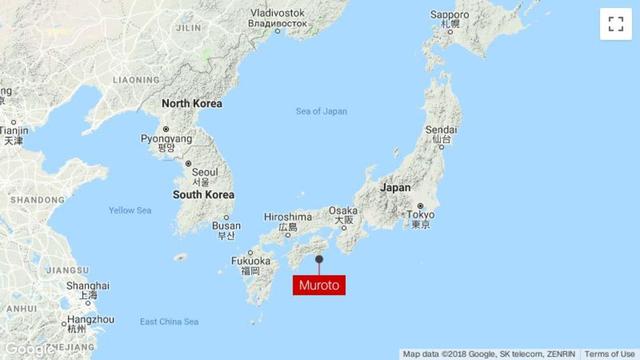
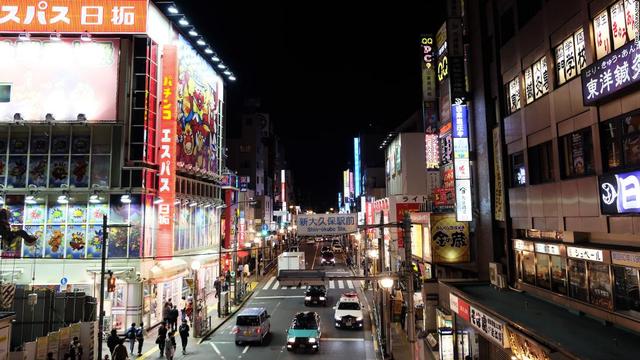
But Japan isn't the only country with such a problem.
但日本并不是唯一一个存在这种问题的国家。
Germany is a also a "super-aged" nation. And by 2030, the US, UK,Singapore and France are expected to have earned that status. While the EU and US veer towards populism and adopt anti-immigrant stances, in Asia nations are competing for new arrivals, potentially reversing the power balance between immigrants and host countries.
- populism 民粹主义
- anti-immigrant 反移民
- stance 立场
德国也是一个“超高龄”国家。到2030年,美国、英国、新加坡和法国有望获得这一地位。当欧盟和美国转向民粹主义、采取反移民立场时,亚洲国家正在争夺新移民,这可能逆转移民与东道国之间的权力平衡。
If Abe is to prevent Japan's population from dipping below 100 million by 2060, he will need to provide migrants good reasons to choose the country, says Hisakazu Kato, an economics professor at Meiji University in Tokyo.
东京明治大学(Meiji University)经济学教授加藤久作(Hisakazu Kato)说,如果安倍晋三要在2060年前防止日本人口降至1亿以下,他就需要为移民提供选择日本的充分理由。
A 2015 Pew survey exploring how people in Asia-Pacific see each other revealed that a median of 71% of people in the region held a favorable view of Japan, with positive views exceeding negative sentiment by more than five-to-one.
- held a favorable view 持赞成意见
- negative sentiment 负面情绪
2015年皮尤研究中心(Pew research center)对亚太地区人们如何看待彼此的调查显示,该地区71%的人对日本持正面看法,正面看法与负面看法的比例超过五比一。
Nguyen points to Japan's solid environmental practices and strong safety record as appealing factors.
阮玲认为,日本扎实的环境保护措施和良好的安全记录是吸引人的因素。
- environmental practices 环保措施
Faced with labor shortages in the 1990s Japan revised its immigration rules to offer long-term, renewable visas to the descendants of Japanese immigrants who had moved to Latin American after World War II.
- revise v. 修订;校订
- descendants n.后代,晚辈
上世纪90年代,面对劳动力短缺,日本修订了移民规则,为二战后移居拉美的日本移民后代提供长期、可续签的签证。
But when the economy slumped in 2008, the government urged those same immigrants to return to Brazil and the other Latin American nations where they had moved from.
- slump: vt. 使降低n. 衰退;暴跌vi. 下降;大幅度下降,暴跌
- urge: vt. 力劝,催促;驱策,推进
但当2008年经济下滑时,政府敦促这些移民返回巴西和其他拉丁美洲国家。
"Japan treats its foreign workers like Kleenex," says Jeff Kingston, a Japanese studies professor. "They have a use-it, toss-it mentality."
- mentality:心态
日本研究教授杰夫•金斯顿(Jeff Kingston)表示:“日本对待外国工人就像对待舒洁面巾纸一样。”“他们有一种用它, 扔掉它的心态。”





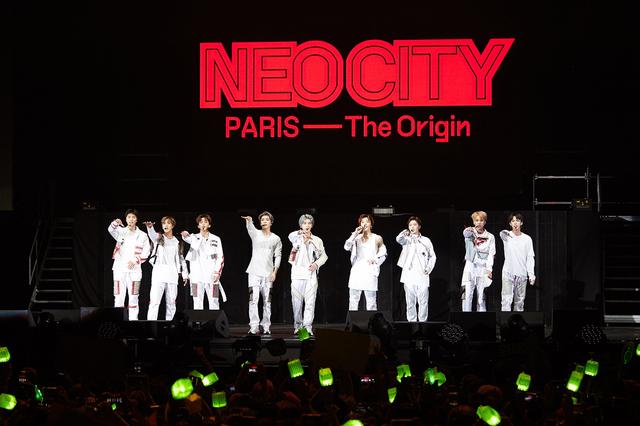


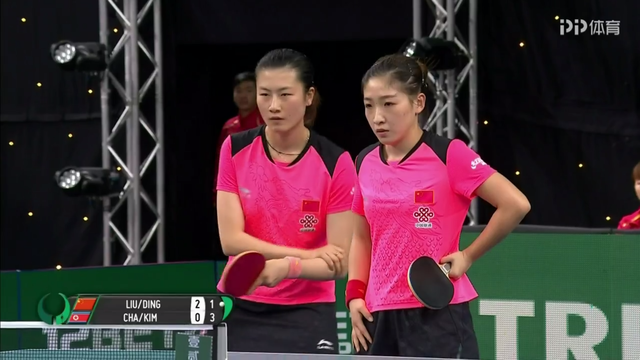











评论